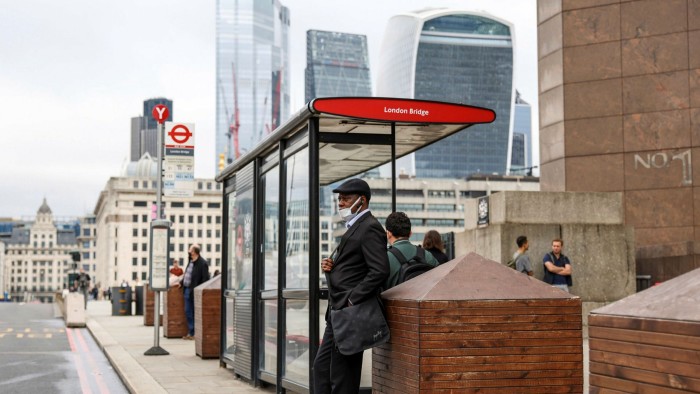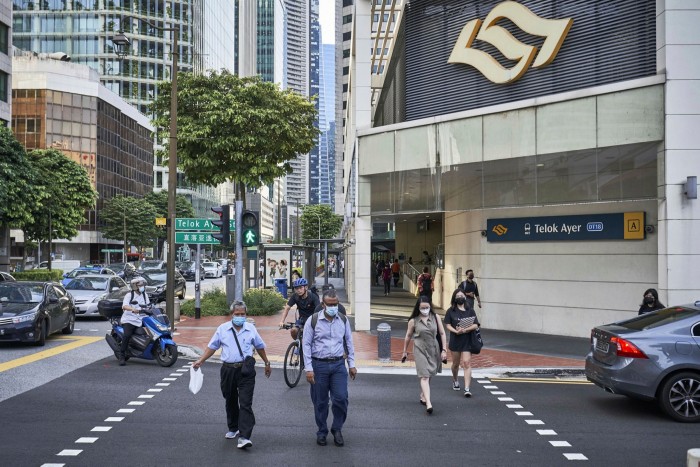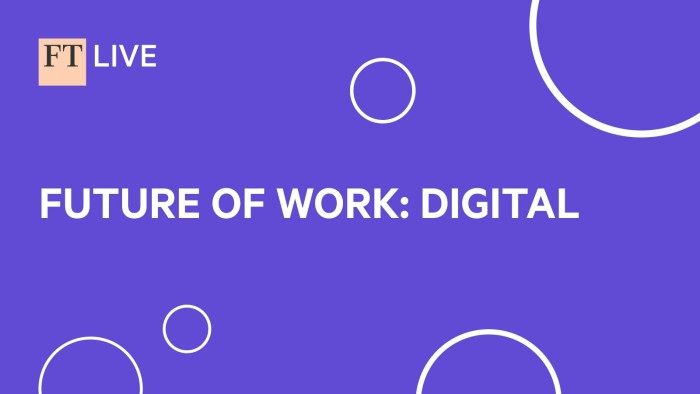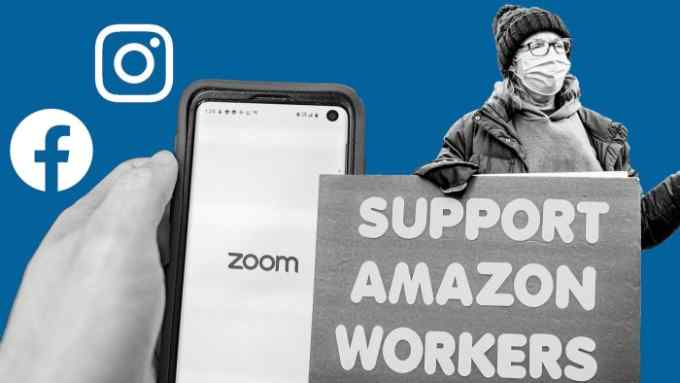HR executives tread carefully into hybrid world of work

Roula Khalaf, Editor of the FT, selects her favourite stories in this weekly newsletter.
Aditi Madhok-Naarden is suspicious of people who profess to be experts on what the post-pandemic future of work will look like.
“You can absolutely have theories, but we are in uncharted territory and the only way we will know what’s going to work is by piloting things, by experimenting,” argues Madhok-Naarden, who is vice-president of human resources for growth markets at Tate & Lyle, the UK-based food group.
“It is not going to be one-size-fits-all,” she says, but recalls some of the conversations she has heard in the HR community. “People are looking for cookie-cutter approaches — ‘Is it two days, is it three [in the office]? What’s the magic number?’ People are pulling their hair out.”
After a year and a half of working through the Covid pandemic, this indecision is understandable. Some companies have made headlines for telling staff to return to the office; others for switching to remote working full-time; but the majority are somewhere in between.
“I see very few people at either extreme,” says Devyani Vaishampayan, a former HR director at British Gas and Rolls-Royce who is now managing partner at London-based HR Tech Partnership, which helps companies use artificial intelligence to manage their workforces. “The majority have accepted, and are actively planning for, a hybrid workplace, where there will be flexibility to work from home and from the office.”

She says most of the companies she works with through her business — and in her board roles — are taking it slowly: “How employees will feel about a hybrid workplace is still evolving.”
“In the past, many organisations did have a flexible or homeworking policy but the assumption was that most people would be in the office, and the balance of power was very much with the employer,” she points out. “Today, the power rests more with employees. Even organisations who don’t want to change are being forced to change.”
Many companies are being guided by staff sentiment as they plan hybrid work policies, such as the UK retailer and consumer services provider Co-operative Group.
“No one is being told to go back to the office,” says Stuart Hookins, chief property officer. “We are still in a phase of complete empowerment and flexibility. It’s up to you, your line manager, your team how you return. The office is open; it’s up to you how you want to use it.”
Co-op Group’s Manchester head office had been used daily by 3,000 staff. But, since the pandemic, that number has more than halved. Hookins says his plan now is to sublet a third or half of the building. A staff survey found that, while the majority would like two or three days a week in the office, 15 per cent preferred four or five — often the younger employees. “We know we’ve got to cater to all of those people,” he explains.
At Tate & Lyle, where employees work in laboratories and factories as well as offices, Madhok-Naarden has to consider regional differences around the world. Unlike the US and Europe, flexible working was relatively new in Asia before the pandemic, she says. “It wasn’t something the infrastructure was available for.”
In Asian countries, it will take time to see how comfortable employees are with hybrid working, she adds, especially as people in different locations will have disparate concerns because typical home sizes and commutes can vary widely. “If I look at Singapore, the commuting time is incomparable to someone who lives in Greater London — it’s half an hour from one end of the island to the other.”

Standard Chartered, the multinational bank, says it started planning for hybrid working in the middle of last year, not long after the initial shock of the pandemic.
“We chose to take a more structured approach upfront,” says Tanuj Kapilashrami, the bank’s chief HR officer. It asked employees to submit a wish list in late 2020 of how, when and where they would like to work, to be agreed with their manager. The bank is now encouraging staff in its top nine markets — just over half of its workforce — to proceed with whatever they have agreed, in line with local government advice.
While certain roles — such as branch teller or trader — do not allow much flexibility, the most common request among staff less constrained by location was to work from home two or three days per week.

One of Madhok-Naarden’s priorities now is to avoid “proximity bias” — ensuring that people who spend less time in the office are not discriminated against. Discussing this openly means that managers in the company are aware of the potential for bias and can act accordingly, she says. That means focusing on outcomes when measuring performance, as well as managers leading by example. “You can say ‘I’m comfortable with hybrid working’ . . . but if you come into the office every day and are present from 9 to 5, that sends a message.”
Working from a different country is also becoming more popular. At Standard Chartered, Kapilashrami has seen a tenfold increase in requests to do this in the past 18 months.
New FT Live event

FT’s Future of Work event series is back this October. Join Facebook, LinkedIn, AstraZeneca, Nasa, and more as they explore key themes such as omnichannel workplaces, the impact of AI on jobs, privacy and security issues in distributed workforces. To book tickets, visit here
During the pandemic, the bank has allowed staff to work remotely from abroad in countries outside its core markets of Asia, Africa and the Middle East — if the immigration and tax rules allow it. This is partly in response to employee requests but, in the long term, is also seen as an opportunity to attract new skilled recruits in other countries — especially Australia, which Kapilashrami says is “a big talent pool for us. It’s an area where we have a lot of digital and tech.”
Office spaces are also evolving. Hookins says it is too early to be redesigning the Co-op’s Manchester headquarters until he sees how people will want to use it. But he is confident that, with appropriate social distancing measures in place now that mask-wearing is no longer mandatory in England, employees will want to be there at least part of the time.
“The energy when you meet people is really nice to see,” he says. “You didn’t get that before [when wearing a mask]. I think that will get people back, wanting to meet people.”
This article has been changed since original publication to clarify Standard Chartered’s policy on staff working abroad

Comments